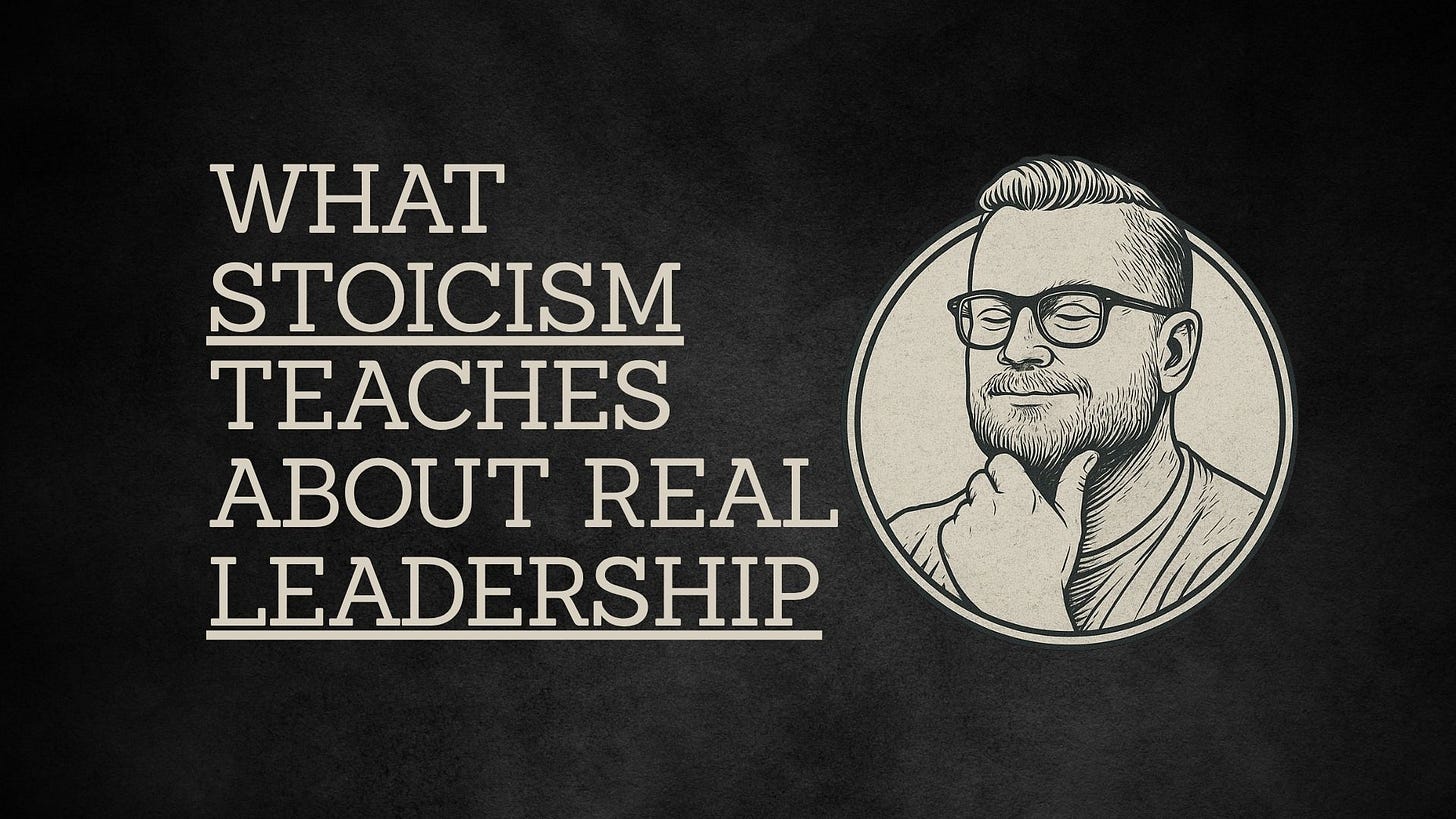“You have power over your mind — not outside events. Realize this, and you will find strength.”
— Marcus Aurelius, Meditations 12.36
There is this moment when you realize that leadership is not about managing others, but about managing yourself.
This may sound counterintuitive, but in fact, it’s the key to creating a successful environment of ownership and maturity. Such an environment is what we need, as individuals and leaders.
I personally don’t believe that we need a leadership role as the directing person, or the manager, as we would say. In my understanding and experience, a good leader creates an environment of leaders.
No master of puppets, who defines the agenda of others, but a person cultivating a space for people with their agendas aligned with the vision & mission of the company.
That’s why Stoicism matters.
“If you are distressed by anything external, the pain is not due to the thing itself, but to your estimate of it; and this you have the power to revoke at any moment.”
— Meditations 8.47
It’s not about ignoring emotions. It’s about understanding them.
It’s about knowing what is in your control and what is not.
It’s about seeing emotions without being ruled by them.
It’s about acting instead of merely reacting.
In leadership, especially in the tech industry, this is essential.
If you can’t stay calm when a system breaks, when a person fails, or when a client panics, you don’t lead; you follow chaos. And chaos never follows you back.
Deadlines, tickets from others, and standups threaten to dictate your day, sometimes even your next hour.
This results in a fast pace and leads to stress. If we don’t control it, it will develop bad habits and, in worst-case scenarios, anxieties.
But by control, I don’t mean the matter itself. I don’t mean working faster or managing the “deadline” more tightly. I mean controlling yourself, and only yourself.
Leadership starts with self-control.
To cultivate an environment where everyone leads by ownership, you, as the person with the role of leader, need to master the following aspects:
I. Credibility
II. Role Model
III. Vision & Mission
IV. Challenge
None of these can be mastered without you understanding & controlling yourself under every and all circumstances.
Sometimes we can sway the outcome of a project today, sometimes we cannot. We challenge ourselves to do what we can, but if we don’t, we accept that. We won’t let grief, shame, or frustration dominate our decisions.
We accept those, we keep clarity, and move on.
Because the only two things we have control over are our actions and reactions.
So, let’s start building habits and virtues to become a credible person worth following —a role model who can narrate a vision and clearly articulate the mission, while also challenging ourselves and others.
This is what this publication is about. My reflections on being a student (discipulus) of practical Stoic philosophy to become a better leader and inspire others to improve.
—Adrian
Founder, CTO & Entrepreneur for 18 years.



